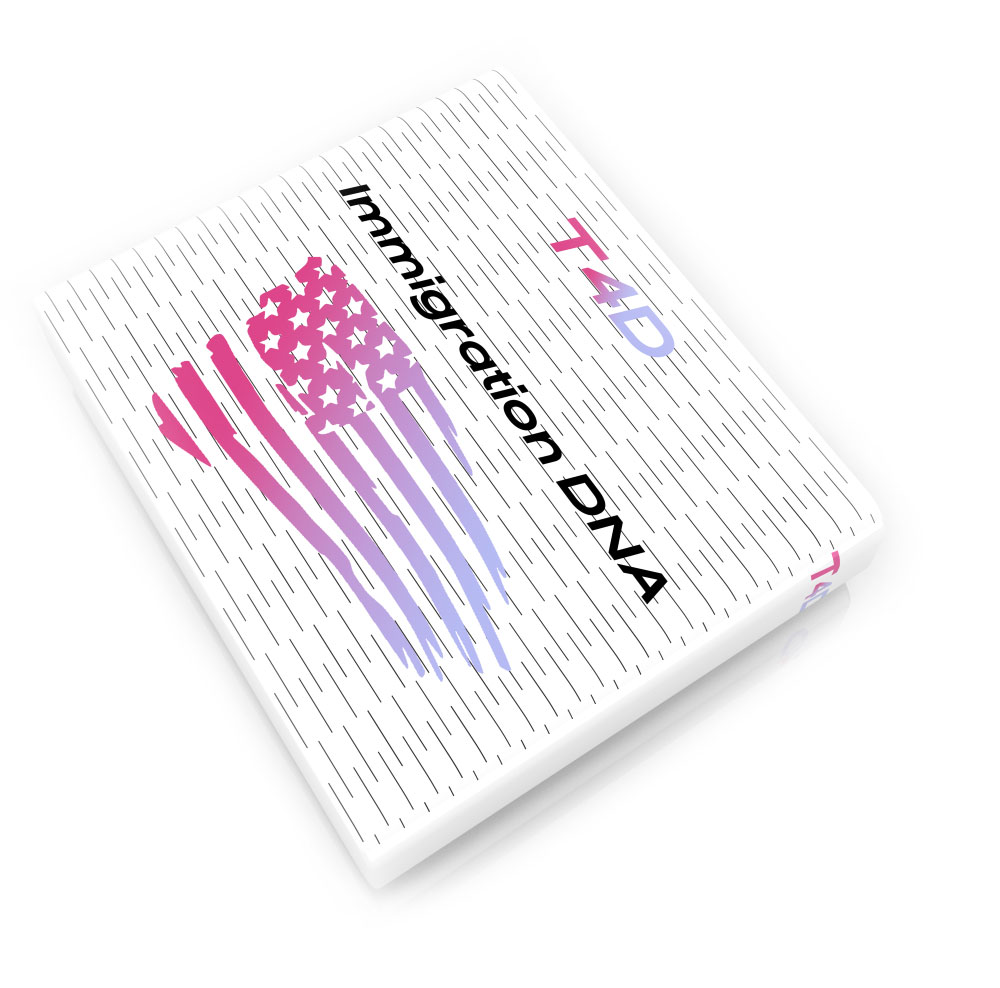Immigration DNA Testing
Immigration DNA Testing Reunites Families remove hurdles in the way of families who are otherwise unable to provide proof of a biological relationship. Testing 4 DNA is providing immigration DNA testing services to families worldwide who wish to be together but are unable to do so because of missing or inadequate records. US immigration laws demand sufficient evidence when granting a visa for family-based petitioners. Usually, primary evidence like a birth certificate is more than enough, or one may also present secondary evidence like school records. But sometimes, if there are some doubts regarding the documents filed or if there is a legal drawback, then the US embassy may request evidence (RFE).


DNA Testing is the most reliable way of proving a biological relationship and can satisfy the most stringent immigration laws. One can establish maternity, paternity, the relationship between siblings as well as with grandparents with the help of DNA testing. The USCIS or the US embassy often request these tests to rest doubts forever. This helps genuine petitioners to prove their relationship with the immigrating beneficiary. TESTING4DNA has the experience to help potential immigrants.
They have several collection centers in the US and can also have the sample collected outside the country with the help of the embassy, or an embassy approved physician. There are specific guidelines that need to be followed in the case of immigration DNA testing for it to be legally accepted. One of the most important is following the correct procedure, that is, the chain of custody procedure. According to this, it is mandatory to properly establish ID of the person whose sample is being collected, which includes ID proof, photographs, and even fingerprints. All this ensures that there are no doubts left, and the result is legally acceptable.
In the case where the sample is to be collected outside the country, then the testing laboratory is required to send the collection kit to the embassy or a physician approved by the embassy for sample collection. Only buccal samples, that is, samples were taken by rubbing cotton swabs against the inside of the cheek, are acceptable, which is entirely painless. Further, as per immigration laws, the results of the test are sent directly to the US embassy, and the USCIS as the case may demand, and a copy is sent to the client. Immigration DNA testing by TESTING4 DNA can establish a relationship up to a 99.9% probability, which more than satisfies the requirements set by law.
Getting a visa can sometimes be a very long drawn process, and immigration DNA testing by TESTING4DNA ensures that all the criteria set by immigration laws are met fully, thereby helping family-based petitioners to reunite with their loved ones that have been left behind.
They have several collection centers in the US and can also have the sample collected outside the country with the help of the embassy, or an embassy approved physician. There are specific guidelines that need to be followed in the case of immigration DNA testing for it to be legally accepted. One of the most important is following the correct procedure, that is, the chain of custody procedure. According to this, it is mandatory to properly establish ID of the person whose sample is being collected, which includes ID proof, photographs, and even fingerprints. All this ensures that there are no doubts left, and the result is legally acceptable.
In the case where the sample is to be collected outside the country, then the testing laboratory is required to send the collection kit to the embassy or a physician approved by the embassy for sample collection. Only buccal samples, that is, samples were taken by rubbing cotton swabs against the inside of the cheek, are acceptable, which is entirely painless. Further, as per immigration laws, the results of the test are sent directly to the US embassy, and the USCIS as the case may demand, and a copy is sent to the client. Immigration DNA testing by TESTING4 DNA can establish a relationship up to a 99.9% probability, which more than satisfies the requirements set by law.
Getting a visa can sometimes be a very long drawn process, and immigration DNA testing by TESTING4DNA ensures that all the criteria set by immigration laws are met fully, thereby helping family-based petitioners to reunite with their loved ones that have been left behind.
We are here to help any and all that needs to find out the truth about their loved ones. our DNA test results can be for your peace of mind or for legal purposes, the result of our DNA tests are final and cannot be challenged. T4D™ DNA test service is private & 100% accurate and the results can be used as a legal document. Please feel free and contact us today so you may begin your journey to the truth.
Ways to collect samples: By TESTING4DNA.COM
Self-made cheek swab, FTA Classic Card, Whole Blood Cord Blood, Bloodstains, Sperm (Semen), Toenail or Fingernail Clippings, Amniotic Fluid, Chorionic Villus Sampling, Fetal Tissue ,Chewed Chewing Gum, Cigarette Butts, Hard Candy, Used Condom, Semen Stains On Clothing, Used Tampons or Used Feminine Pads, Sweaty Hat or Ball Cap Hocked Loogie (spit), Plucked Hair, Q-tips with earwax Snotty Kleenexes, Urine, Electric Razor Debris.
Ways to collect samples: By TESTING4DNA.COM
Self-made cheek swab, FTA Classic Card, Whole Blood Cord Blood, Bloodstains, Sperm (Semen), Toenail or Fingernail Clippings, Amniotic Fluid, Chorionic Villus Sampling, Fetal Tissue ,Chewed Chewing Gum, Cigarette Butts, Hard Candy, Used Condom, Semen Stains On Clothing, Used Tampons or Used Feminine Pads, Sweaty Hat or Ball Cap Hocked Loogie (spit), Plucked Hair, Q-tips with earwax Snotty Kleenexes, Urine, Electric Razor Debris.
Call At (866) 773-3671
" To insure 100% accurate results, we run all tests twice "
Copyright © TESTING4DNA™
All content on this website is copyright protected & monitored. You may not, except with our express written permission, distribute or commercially exploit our content. Nor may you transmit it or store it in any other website or another form of electronic retrieval system, failing to do so will result in a lawsuit.


